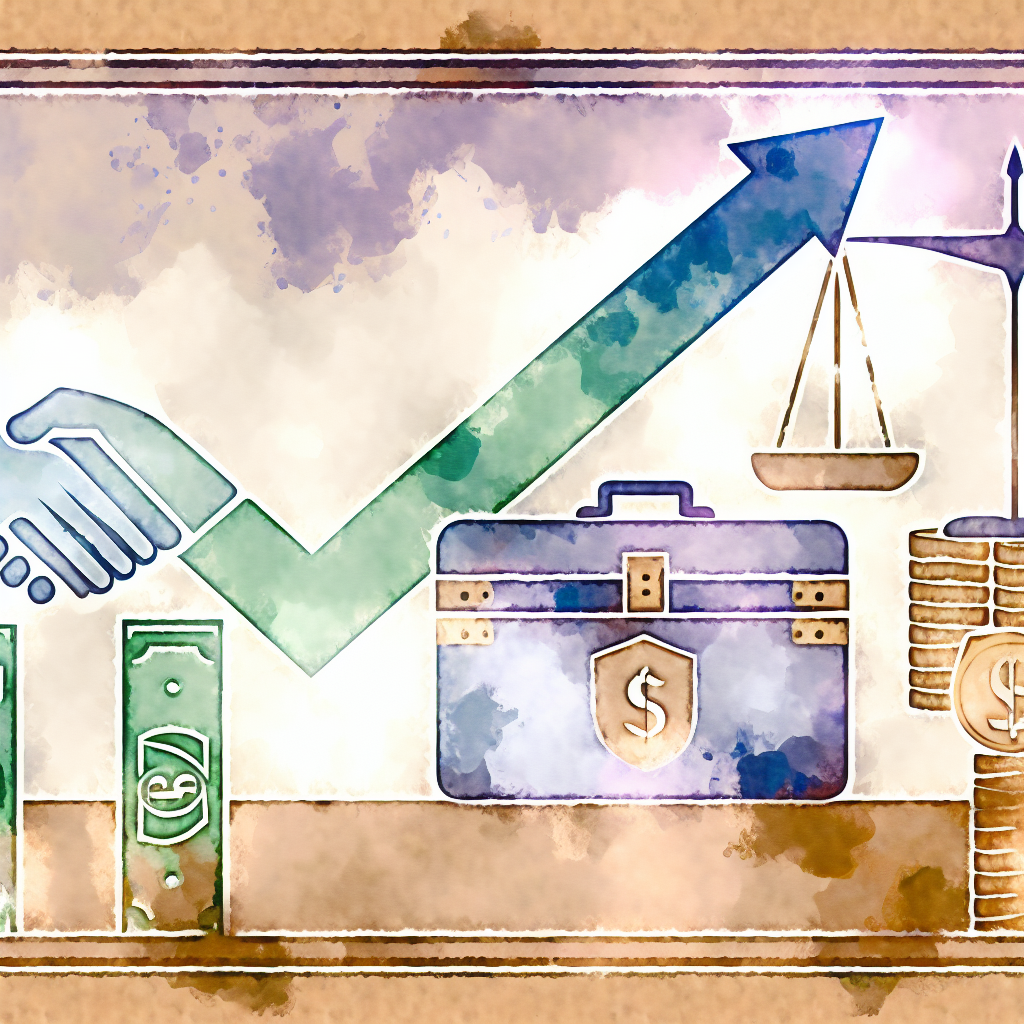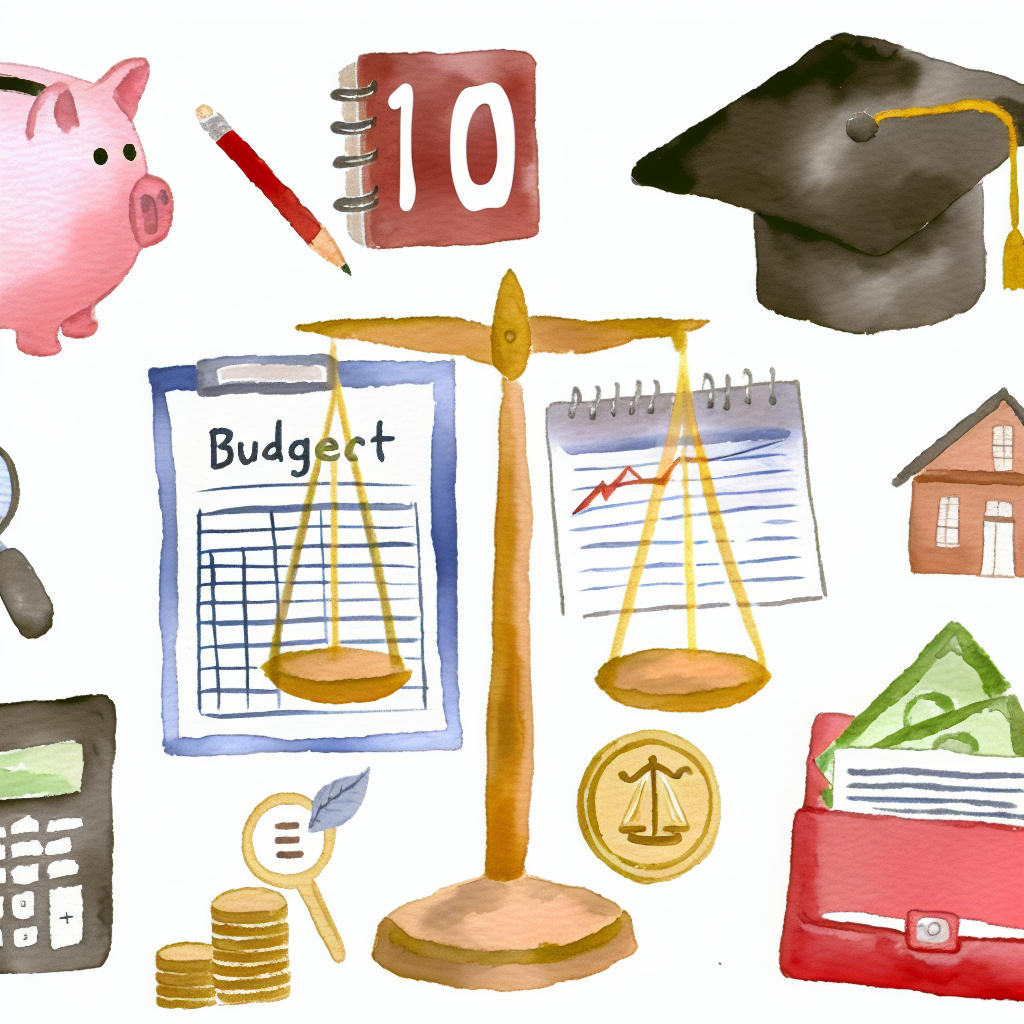Introduction to the Importance of Monitoring Your Credit
In today’s increasingly digital world, maintaining a healthy credit profile isn’t just a good financial habit; it’s a necessity. Your credit score affects myriad aspects of your life, from your ability to secure a loan or mortgage to how much you might pay in interest rates and insurance premiums. Yet, despite its importance, many people neglect regular credit monitoring, often leading to unpleasant financial surprises.
Regular credit checks allow you to understand your financial standing better, ensuring that your credit report accurately reflects your current situation. A single error on your credit report could see your credit score plummet, resulting in denied loan applications and higher interest rates. By keeping an eye on your credit, you can identify and rectify such errors before they become significant issues.
Furthermore, being proactive about credit monitoring can help you detect potential signs of identity theft early. Identity thieves thrive on the element of surprise, and they can quickly wreak havoc on your credit profile if left unchecked. Regular monitoring ensures that any unusual activity is spotted early, allowing you to take swift action to mitigate any damage.
Lastly, regular credit monitoring is an excellent way to gain insights into your financial behavior. Understanding the factors that affect your credit score enables you to make informed decisions, set financial goals, and work towards achieving them. By making credit monitoring a routine part of your financial management, you are paving the way for a more secure and prosperous financial future.
Understanding Your Credit Report and Credit Score
Your credit report and credit score are fundamental aspects of your financial health. The credit report is a detailed record of your credit history, including your borrowing habits, repayment history, and any public records such as bankruptcies or foreclosures. It is a crucial tool used by lenders to evaluate your creditworthiness.
Credit scores, on the other hand, are numerical summaries of your credit report, ranging from 300 to 850 in most scoring models, such as FICO and VantageScore. Higher scores indicate lower credit risk, making you more attractive to lenders. Several factors influence your credit score, including payment history, amounts owed, length of credit history, new credit, and types of credit used.
Understanding your credit report involves regular checks for accuracy. It’s crucial to ensure that all accounts listed are ones you recognize and that the reported information is correct. Errors can occur due to various reasons, such as administrative mistakes or fraudulent activity. Common errors include incorrect personal information, accounts that don’t belong to you, and inaccurate payment statuses.
In summary, your credit report and credit score are dynamic and comprehensive reflections of your financial behaviors and responsibilities. Regularly reviewing these documents helps you maintain a clear understanding of your credit standing and empowers you to take action when necessary.
Different Methods to Monitor Your Credit Regularly
Monitoring your credit doesn’t have to be a tedious task. Several methods can help you keep tabs on your credit report and score effectively. Each method comes with its own pros and cons, allowing you to choose the one that best fits your lifestyle and financial goals.
One of the simplest methods is to manually request your credit report from each of the three major credit bureaus—Equifax, Experian, and TransUnion. Federal law allows you to obtain a free copy of your credit report from each bureau once every 12 months. You can stagger these requests throughout the year to monitor your credit more frequently.
Another efficient method is to sign up for a credit monitoring service. These services can be either free or paid and offer various features, such as regular credit report updates, credit score tracking, and alerts for significant changes. Free services generally provide basic monitoring, while paid subscriptions often include more comprehensive features like identity theft protection and detailed credit analysis.
Mobile apps have also made credit monitoring more accessible. Various financial apps can sync with your accounts and provide real-time alerts for any changes in your credit report or score. These apps often come with additional financial tools, such as budgeting and spending analysis, making them a valuable resource for overall financial management.
In conclusion, the method you choose to monitor your credit regularly will depend on your specific needs and preferences. Whether through manual checks, credit monitoring services, or mobile apps, staying informed about your credit is crucial for maintaining financial health and avoiding unforeseen issues.
Using Free Credit Monitoring Tools
Free credit monitoring tools offer an accessible way to keep track of your credit health without any financial investment. These tools, often provided by financial institutions or specialized credit monitoring services, can offer a wealth of information and protective features to help you stay on top of your credit.
One of the most well-known free credit monitoring services is Credit Karma. This platform provides free access to your credit reports from TransUnion and Equifax, along with regular credit score updates. Credit Karma also offers personalized financial recommendations based on your credit profile, helping you make informed decisions about loans, credit cards, and other financial products.
Another reputable free tool is Credit Sesame, which offers free credit monitoring services, providing you with access to your Experian credit report and credit score. Credit Sesame also offers a $50,000 identity theft insurance policy for free, adding an extra layer of security for users. Additionally, you receive alerts if there are significant changes to your credit report, helping you catch potential issues early.
Many banks and credit card issuers, such as Discover and Capital One, also provide free credit monitoring services to their customers. These services typically include regular credit score updates and real-time alerts for any significant changes to your credit report. This can be an excellent way to leverage existing relationships with financial institutions to monitor your credit.
In summary, free credit monitoring tools offer valuable resources to monitor your credit health without any additional cost. By taking advantage of these tools, you can stay informed about your credit status and address any potential issues promptly.
The Benefits of Paid Credit Monitoring Services
While free credit monitoring tools offer a significant array of features, paid credit monitoring services can provide even more comprehensive benefits. Investing in a paid service could be worthwhile if you’re looking for more extensive protection and insights into your credit health.
Paid credit monitoring services often include daily or real-time updates of your credit report from all three major bureaus – Equifax, Experian, and TransUnion. This constant monitoring ensures you are always aware of any changes to your credit profile, providing peace of mind and enabling you to act swiftly if something seems amiss.
In addition to more frequent updates, paid services often come with advanced identity theft protection features. This can include dark web monitoring, where the service looks for your personal information on the internet’s black market sites, and social security number alerts, which notify you if your SSN is being used suspiciously. These features can be crucial in catching identity theft early and minimizing its impact.
Paid services also typically offer more robust customer support and dispute assistance. If you find an error on your credit report, navigating the dispute process can be overwhelming. However, many paid services provide direct support to help you correct inaccuracies, making the process smoother and more efficient.
To summarize, paid credit monitoring services offer more comprehensive protection and features that can be invaluable in maintaining your credit health and protecting against identity theft. The investment in such services can pay off by saving you from potentially costly credit report errors and fraudulent activities.
Setting Up Credit Alerts and Notifications
Setting up credit alerts and notifications is an effective way to stay informed about changes in your credit report without the need for constant manual checks. These alerts can quickly notify you of important updates, allowing you to respond promptly to any potential issues.
Many free and paid credit monitoring services offer various types of alerts, such as:
- New Account Alerts: Notify you when a new account is opened in your name, helping you catch potential fraudulent activity early.
- Credit Inquiry Alerts: Inform you when a lender makes a hard inquiry on your credit report, which can impact your credit score.
- Balance Change Alerts: Alert you to significant changes in the balances of your existing accounts, which can help you manage debt more effectively.
To set up these alerts, you’ll need to log into your chosen credit monitoring service and navigate to the alert settings. You can typically customize the types of alerts you wish to receive and via what method (email, SMS, or push notifications). Customizing these settings ensures that you receive the most relevant alerts for your financial needs.
Additionally, some financial institutions and credit card issuers offer their own alert systems. Checking if your bank or credit card provider provides this service can add another layer of protection. These alerts can often be managed through your online banking portal or mobile app.
In conclusion, setting up credit alerts and notifications is a proactive strategy to stay on top of your credit health. By leveraging these tools, you can react quickly to any changes or suspicious activities, thus safeguarding your credit profile more effectively.
Common Credit Report Errors and How to Dispute Them
Credit report errors can significantly impact your credit score and financial standing, making it crucial to regularly check for inaccuracies. Common errors might include incorrect personal information, accounts that don’t belong to you, or inaccurate payment histories.
One frequent error is outdated or incorrect personal details, such as your name, address, or employer. These errors can often be rectified by contacting the credit bureau directly and providing updated information. Another common issue is unfamiliar accounts. These could be genuine mistakes or indicators of identity theft, necessitating immediate investigation and action.
Inaccurate payment histories or account statuses can also adversely affect your credit score. For instance, a payment marked as late when it was actually made on time can significantly drop your score. To dispute these errors, gather all relevant documentation, such as bank statements or payment receipts, to support your claim.
The dispute process generally involves these steps:
- Review Your Report: Carefully examine your credit report for any discrepancies.
- Document the Errors: Gather any evidence that supports your case.
- Contact the Credit Bureau: Submit a dispute to the credit bureau showing the errors. Most bureaus allow online submissions but also accept disputes via mail.
- Follow Up: Regularly check the status of your dispute to ensure it is being resolved.
In summary, identifying and disputing credit report errors is a vital part of maintaining a healthy credit profile. By taking prompt action to correct these inaccuracies, you can protect your credit score and overall financial well-being.
Steps to Take if You Find Unexpected Changes in Your Credit Report
Discovering unexpected changes in your credit report can be alarming, but acting quickly can minimize any potential damage. Whether it’s an unfamiliar account, a sudden drop in your score, or an unexpected credit inquiry, the steps you take next are crucial.
First, review the specifics of the change. Determine whether the change could be a result of your actions, such as a late payment or new account you recently opened, or if it’s something you don’t recognize. Double-check your recent financial activities to rule out any errors on your part.
If the unexpected change isn’t due to your actions, start by contacting the credit bureau to understand more about the issue. Request a detailed explanation or any available documentation to help clarify the situation. This might involve reaching out to the customer service department or using the dispute resolution process provided by the bureau.
Next, if you suspect fraudulent activity, contact the creditor associated with the unfamiliar account or inquiry. Let them know the account is not yours and that it may be a case of identity theft. You should also place a fraud alert or credit freeze on your credit reports to prevent further fraudulent activity. This will alert potential creditors to take extra steps to verify your identity before extending credit.
To summarize, immediate attention and prompt actions can mitigate the impact of unexpected changes in your credit report. By investigating the issue thoroughly and enlisting the help of relevant financial institutions, you can protect your credit profile from further harm.
How Regular Credit Monitoring Can Prevent Identity Theft
Identity theft remains a growing concern in the digital age, with millions falling victims annually. Regular credit monitoring is a vital tool in combating this menace, offering early detection and preventing extensive damage to your financial profile.
By keeping track of your credit reports and scores, regular monitoring helps you identify any unfamiliar or unauthorized activities early on. Unapproved credit inquiries, unknown accounts, or significant changes in your credit score can be red flags indicating potential identity theft. Immediate detection allows you to take swift action, thereby limiting the extent of the damage.
Many credit monitoring services offer features specifically designed to combat identity theft, such as:
- Dark Web Monitoring: Scans the dark web for your sensitive information, ensuring that your personal details are not being sold or traded.
- Social Security Number (SSN) Alerts: Notify you if your SSN is used unexpectedly, helping you catch fraudulent activities sooner.
- Identity Theft Insurance: Provides financial coverage for potential damages resulting from identity theft, including lost wages and legal fees.
Another advantage of regular credit monitoring is the ability to place a fraud alert or credit freeze on your reports when suspicious activity is detected. A fraud alert warns creditors to verify your identity before processing any new credit requests, while a credit freeze restricts access to your credit reports, making it significantly harder for identity thieves to open new accounts in your name.
In conclusion, regular credit monitoring is a powerful tool in preventing identity theft. By staying vigilant and using available protective features, you can safeguard your financial well-being against this pervasive threat.
Tips for Maintaining a Healthy Credit Score
Achieving and maintaining a healthy credit score requires consistent effort and smart financial habits. Here are some essential tips to help you manage your credit score effectively:
First, always pay your bills on time. Payment history is one of the most significant factors affecting your credit score. Late payments can severely impact your score and remain on your credit report for years. Setting up automatic payments or reminders can help ensure you never miss a due date.
Second, keep your credit card balances low in relation to your credit limits. This is known as your credit utilization ratio. A high ratio can negatively affect your score, even if you pay off your balances in full each month. Aim to use no more than 30% of your available credit to maintain a healthy credit score.
Third, avoid opening multiple new credit accounts in a short period. Each new account results in a hard inquiry on your credit report, which can lower your score temporarily. Moreover, multiple new accounts can make you appear as a higher risk to lenders. Only apply for new credit when it’s necessary and beneficial.
Here’s a quick reference table to summarize credit score tips:
| Tip | Explanation |
|---|---|
| Pay Bills on Time | Late payments can significantly affect your credit score. |
| Maintain Low Credit Utilization | Use no more than 30% of your available credit. |
| Limit New Credit Applications | Multiple inquiries can lower your credit score temporarily. |
Additionally, regularly review your credit reports for any inaccuracies. Mistakes on your report can drag down your score and may go unnoticed if not checked regularly. Disputing errors promptly can help maintain an accurate and strong credit profile.
In summary, maintaining a healthy credit score boils down to responsible financial behavior. By focusing on timely payments, managing your credit utilization, and being mindful of new credit applications, you can achieve and sustain a strong credit profile.
Conclusion: Proactive Credit Monitoring as a Financial Habit
Proactive credit monitoring is not just a precaution; it should be an integral part of your financial habits. It provides a critical mechanism for maintaining your financial health and ensuring that your credit report and score reflect your real financial behaviors and responsibilities.
By regularly checking your credit, you can quickly identify and address errors or unusual activities, preventing them from escalating into bigger issues. This practice safeguards you against the negative consequences of inaccuracies and potential identity theft, which can severely damage your financial standing.
Moreover, understanding your credit profile allows you to make informed financial decisions. Whether you’re planning to apply for a loan, rent an apartment, or make a significant purchase, knowing your credit score and history ensures you can do so with confidence and at the best possible rates.
Incorporating regular credit monitoring into your routine isn’t just about preventing problems; it’s also about fostering a better understanding of your financial habits. This awareness helps you set realistic financial goals, adopt better financial practices, and ultimately achieve a more secure and prosperous future.
In conclusion, making proactive credit monitoring a regular financial habit is a simple yet effective way to protect and enhance your financial well-being. It’s an investment in your future that pays significant dividends in terms of security, peace of mind, and financial success.
Recap
To recap, regular credit monitoring is essential for maintaining a healthy financial profile. Key points covered in this article include:
- An introduction to the importance of monitoring your credit status regularly.
- Understanding the components of your credit report and credit score.
- Different methods for monitoring your credit, including manual checks, free tools, and paid services.
- The benefits of setting up alerts and notifications.
- Common errors in credit reports and how to dispute them.
- Steps to take if you find unexpected changes in your report.
- How credit monitoring can prevent identity theft.
- Tips for maintaining a healthy credit score.
FAQ
1. What is credit monitoring? Credit monitoring involves regularly checking your credit report and credit score to identify any changes or errors.
2. Why is it important to monitor my credit regularly? Regular monitoring helps identify errors, track financial behavior, and catch potential identity theft early.
3. How often should I check my credit report? At a minimum, you should check your credit report annually, but more frequent checks—every few months—are recommended.
4. Are free credit monitoring tools reliable? Yes, while they may offer fewer features than paid services, free credit monitoring tools are generally reliable and provide essential monitoring functions.
5. What should I do if I find an error on my credit report? Immediately dispute the error with the credit bureau, providing documentation to support your claim.
6. Are paid credit monitoring services worth it? Paid services offer more comprehensive monitoring and advanced features like identity theft protection, making them worth it for added security.
7. How do I set up credit alerts? You can set up alerts through credit monitoring services or your financial institutions’ online portals.
8. Can regular credit monitoring prevent identity theft? While it can’t prevent identity theft entirely, regular monitoring can help detect it early, reducing potential damage.
References
- Federal Trade Commission (FTC) – Credit Reports and Scores
- Consumer Financial Protection Bureau (CFPB) – How to dispute an error on your credit report
- Experian – How to Protect Yourself from Identity Theft











